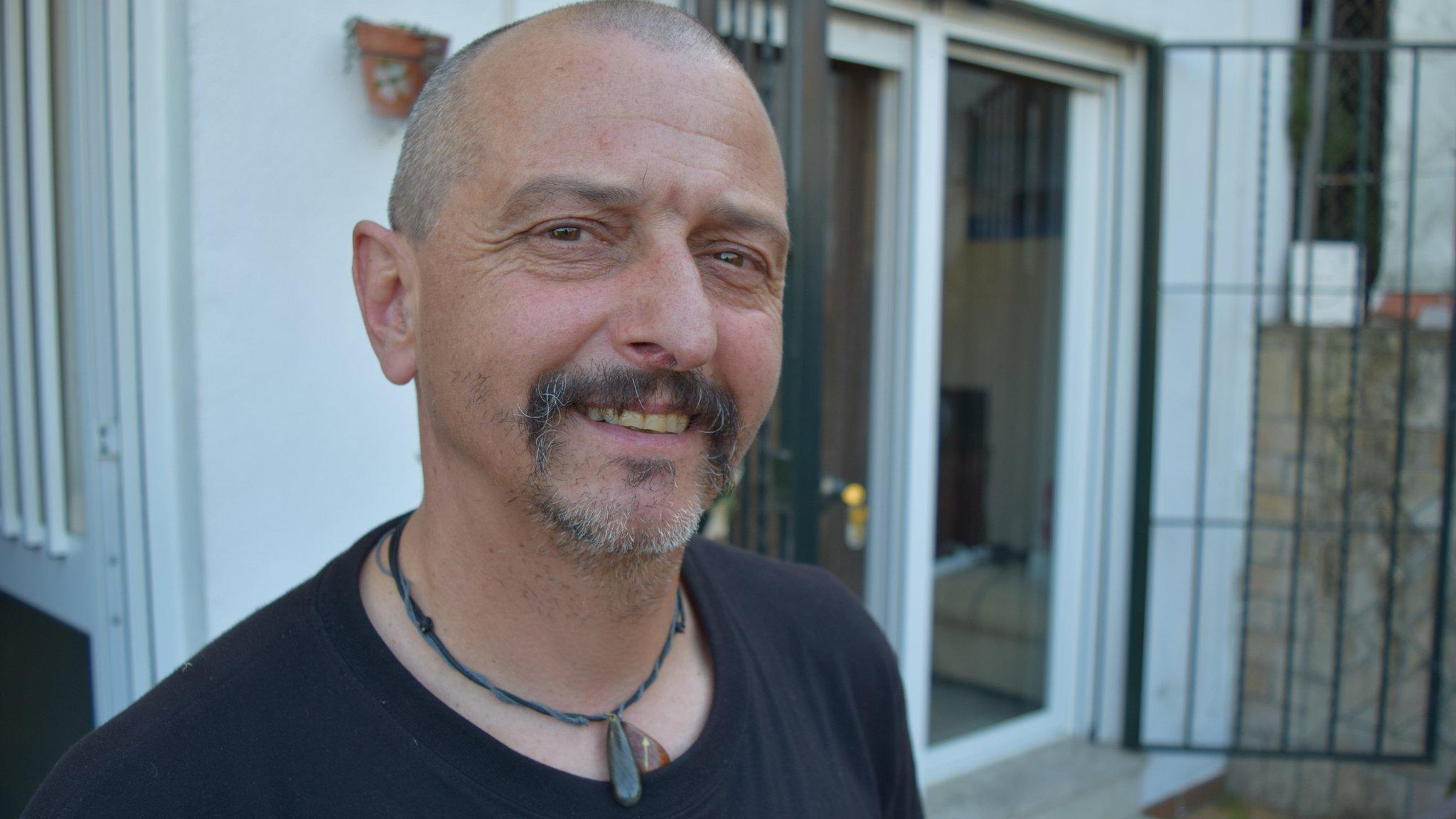European elections: French jobs for Spanish builders
- Published
A French state contract for a Spanish construction firm to build a rescue service base is dividing opinion among jobless people in Perpignan.
In Perpignan, the historic capital of the Roussillon region, the presence of the "Spanish building site" on the southern outskirts of the French city divides opinion.
Why, people ask, was a Barcelona firm given a French state contract to build the new regional barracks for the rescue services? An "ugly business", in the words of my taxi driver. Local media have reported anger among French construction firms, external.
In fact, the Spanish won the contract in a tender conducted according to EU competition rules, and French firms will do the finishing work. In a way, it stands as a model for co-operation between richer and poorer EU states.
Languedoc-Roussillon has the unenviable status of being the region with the second-highest unemployment in France (after Nord-Pas de Calais), at 12.9% last year.
To find out what unemployed people think of the issue, what better place to go than the St Jacques quarter and a market bar on the Place de Cassanyes, where the poor of Perpignan come to do their buying?
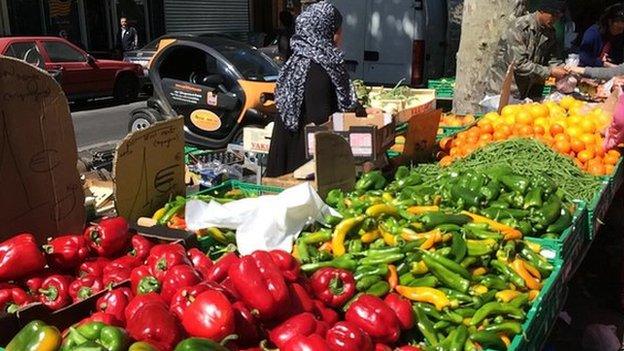
The poorer folk of Perpignan come to the Place de Cassanyes to shop for essentials
What they say reflects to some extent the further fracturing of the French left, two years into Socialist rule.
'They didn't ask us'
Painter and decorator Hassan (not his real name), 52, has not worked for four years but has not lost his interest in politics in Perpignan.
Born in Morocco, and now a French citizen and voter, he is inclined towards the left but voted tactically, he says, at this year's local elections for the main centre-right opposition party, the UMP, to keep out the far-right National Front.
The National Front came close to winning, reflecting rising impatience with the country's mainstream parties. Perpignan has been a stronghold of the centre-right for years.
"I don't find it okay at all that they didn't ask us first when it came to building the new rescue services' barracks," he says at a table in the Bar Cassanyes.
What does he think about the EU and the euro? "The EU changes nothing for poor people like us," he replies. "Times were good when we had the franc. We've been screwed by the euro."
'Peoples interacting'
Corinne, external, 49, an unemployed bookseller who now occasionally installs flying book stands at festivals, also misses the franc: "The euro has impoverished people. Everything has risen in price. A baguette once cost two francs. It now costs the equivalent of six."
For her, the EU in its existing form is a disappointment: "It has only brought people misfortune."
At the European elections, she will vote for the Left Front, the party of the radical left, to "bring real change to Europe".
"I am quite happy about Spaniards coming to France to work, just as I might go to work in Spain," she says. "Europe is about peoples interacting. Europe is not just economic, it's social."
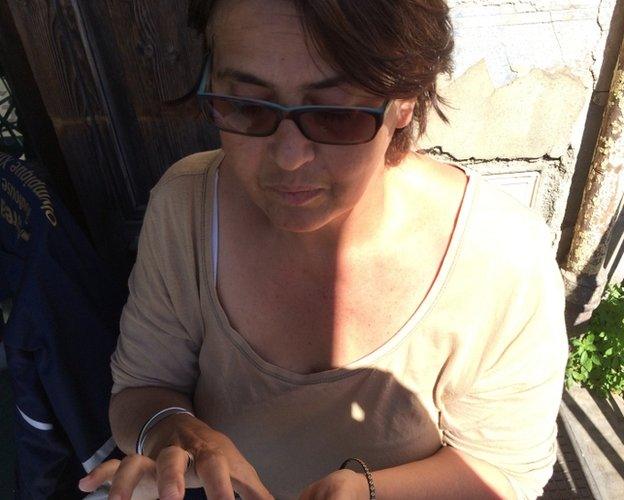
Corinne says unemployment has made her more creative
She used to sell books at the Fnac store but left her job after it cut back on book launches at regional branches, she says.
For her, unemployment has one silver lining, however: it has encouraged her to become more creative in promoting the books she loves, she says, by blogging, for example.
Gaullist left
Nicolas Caudeville, external has never formally worked because of ill-health but his craft is journalism, the blogger says, glowing with a passion and pride to rival Corinne's love of books.
He is concerned about French unemployed people losing out but equally worried about his friends in Spain, where "the people are being brought down on the pretext of [fixing the] economy".
It is hard to categorise Nicolas politically, other than to say he is a Gaullist of the left, from a family with Norman and Walloon aristocratic lineage ("we thought it was better to lose our title than our heads"), which leans to the right.
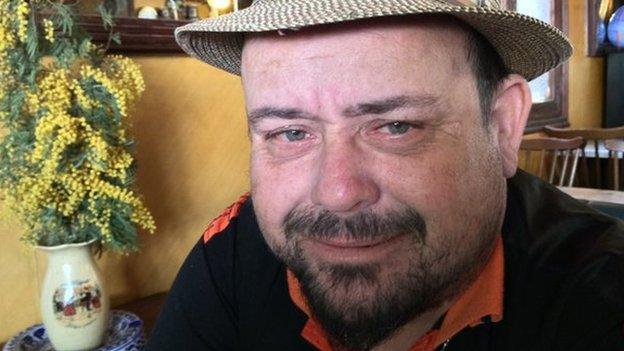
Nicolas Caudeville is torn between protecting French employment and that of his friends in Spain
By Gaullism, he means French sovereignty and the ideals of the French Revolution.
Subscribing to the "liberation theology" tendency of the Catholic Church, he says he and his cat have made their home among the French Arabs of the St Jacques quarter for philosophical reasons, to observe the world: "As [the Greek philosopher] Diogenes made his home in a barrel, so I have in St Jacques."
His choice appears to change with every ballot but he will vote on 25 May for New Deal, a small centre-left party with an anti-austerity platform, inspired by John Maynard Keynes and espousing the welfare state.
"There is as much socialism in the [French] Socialist Party," he says, "as there is beef in a horse lasagna."
You can also follow Patrick Jackson's reporting on jobless politics in the southern eurozone on his blog on Tumblr, external or get updates via Twitter, external.
- Published6 May 2014
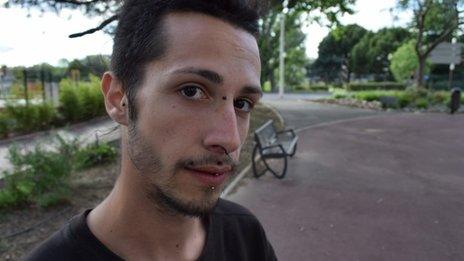
- Published3 May 2014
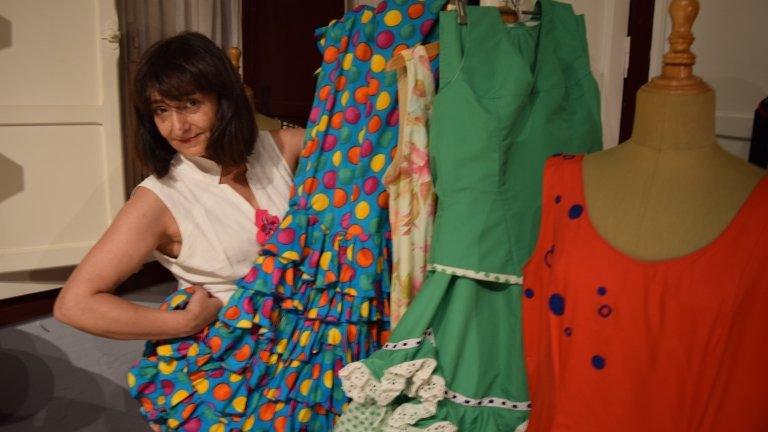
- Published1 May 2014
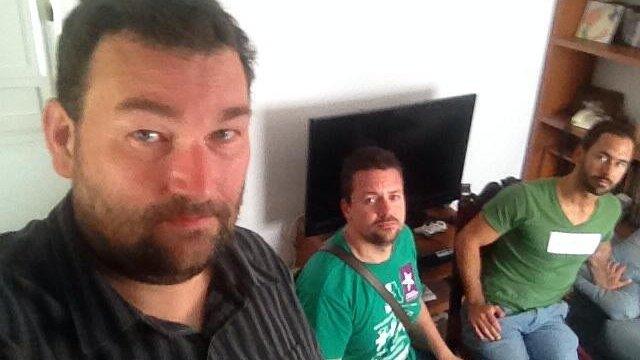
- Published30 April 2014
